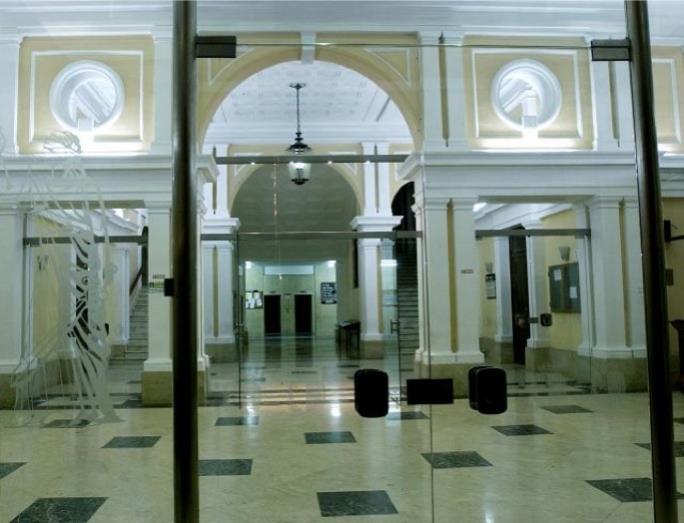The Constitutional Court has the duty to repeal unconstitutional laws but which duty it has betrayed and vended to the politicians, former European Court of Human Rights judge Giovanni Bonello, told The Malta Independent on Sunday.
His reaction came after the government, last week, submitted a letter to the Venice Commission putting forward the implementations to their recommendations, made in 2018. One of the recommendations of the Commission revolved around the powers of the Constitutional Court.
As it stands, one can appeal decisions from other courts on questions relating to the interpretation of the Constitution, and the validity of laws, as well as appeal from decisions on an alleged breach of fundamental human rights.
The Constitutional Court, however, many find a law unconstitutional, but this does not mean it is removed from the body of laws. It is up to Parliament to repeal or amend the law. Furthermore, the law that is found unconstitutional will only be so to the parties to the case, and the law is not unconstitutional for all other citizens.
The legal principle referred to as Erga Omnes implies that a judgement is one that is binding “on everyone”. The Venice Commission reported that the execution of a judgment of the Constitutional Court is an essential requirement of the rule of law. Leaving the choice of whether or not to follow the judgments of the Constitutional Court to Parliament does not live up to this requirement. The Commission recommended that the Constitution be amended so as all legal provision found unconstitutionally are automatically annulled.
The government, in its report to the Venice Commission, said that it considers this Erga Omnes principle to go “against established principles of the Maltese legal system and would itself give rise to an undue complication…”
Bonello, who has always been a firm believer in this legal principle, notes that there is no other state beside Malta, among the democratic countries governed by the Supremacy of the Constitution, in which a law found to violate that Constitution remains valid and enforceable despite the unequivocal mandate of the Constitution itself.

He explains that there are two constitutional systems in democracies. One, based on the ‘Supremacy of the Constitution’, which is the guiding principle in virtually the whole of the democratic world, and the other, based on the ‘Supremacy of Parliament’, which is peculiar to the United Kingdom.
Under the UK Supremacy of Parliament, nothing is superior to Parliament. It is only Parliament that makes or unmakes laws and the courts are only there to interpret them and enforce them. The courts cannot repeal laws which are found to violate the Constitution or pronounce them invalid. It is only Parliament that is empowered to do that.
He continues to say that this is wholly different in the rest of the democratic world, which functions under the Supremacy of the Constitution system. Everything in the state – including Parliament - is subject to the Constitution and must conform to it. The Constitutional or Supreme Court of these countries has the function to examine whether a law conforms with the supreme law (the Constitution). It that law is found to violate the Constitution, that law ceases to exist. It is voided by the very fact that it violates the Constitution.
Bonello also believes that the Constitution of Malta could not be clearer, and does not need amending in this respect. It places Malta squarely and unequivocally with the rest of the democratic world which embraces the Supremacy of the Constitution.
The Constitution commands, in Article 6: “Constitution to be supreme law... If any other law is inconsistent with this Constitution, this Constitution shall prevail and any other law shall, to the extent of the inconsistency, be void”.
“It is sad to find that even in states which do not have anything like our Article 6, their Constitutional Courts have asserted the principle of the Supremacy of the Constitution. We have done exactly the opposite. Our Constitution expressly wants the Constitution to be supreme over Parliament and those unconstitutional laws are held void - and yet our Constitutional Court has betrayed its fundamental function and left it to the politicians whether to repeal or not laws that it has itself found to violate the Constitution.”
When asked about the government’s letter on the recommendation, specifically about the powers of the Constitutional Court, Bonello said “I am not quite sure what the Minister means that by putting Malta in line with the rest of the democratic world, we ‘would go against established principles of the Maltese legal system’. I am not aware of one single serious and independent constitutional law expert, of one single reputable legal scholar, who agrees with this betrayal of the Supremacy of the Constitution. I do not include the juke-box ‘experts’, those that will play you the song of your choice, provided you push a coin through the slot.”

In its letter, the government claimed that this legal principle could give rise to legal uncertainty but Bonello believes it is exactly the opposite that is true. “Today we have a situation where a law is valid and invalid at the same time. The same law is not binding on X, but binding on everyone else. How this bipolarity is seen to eliminate “legal uncertainly” escapes me entirely.”
Another common defence against the introduction of Erga Omnes is that the courts could be flooded with people putting forward cases. Bonello says that this is the product of the unworthily pro-politician stance of the Constitutional Court, not the other way round.
Today if there are a thousand persons affected adversely by a law that violates human rights, a thousand constitutional cases have to be instituted in the Constitutional Court, he explains. Under the Erga Omnes doctrine, one case would be sufficient. “Is one a ‘flood of cases’ while a thousand cases are seen as sparing the courts unnecessary burdens? I don’t think so.”
When asked if there were any disadvantages to introducing this principle, Bonello said that it would be that of diminishing the absolute power of politicians to leave in place laws that violate human rights.
Bonello also believes that most laws found to have violated human rights in Malta have not been repealed by Parliament. “Thanks to the Constitutional Court, those unconstitutional laws are still valid and binding.”
He also insists that the method how unconstitutional laws are repealed is not important, but that the rule of law in states which should follow the Supremacy of the Constitution, demands the last word on the validity of laws rests with the constitutional judiciary, not with the politicians.